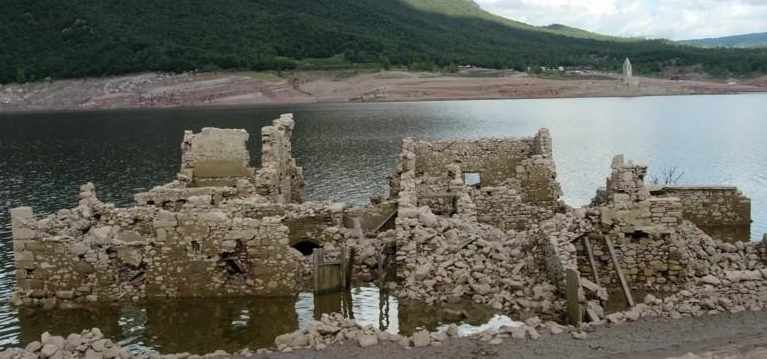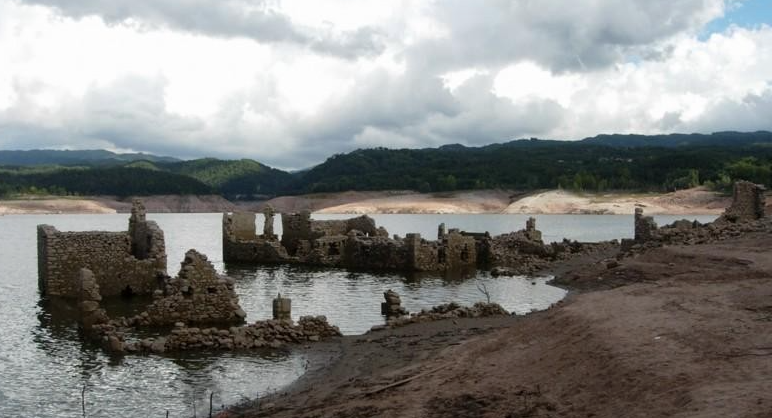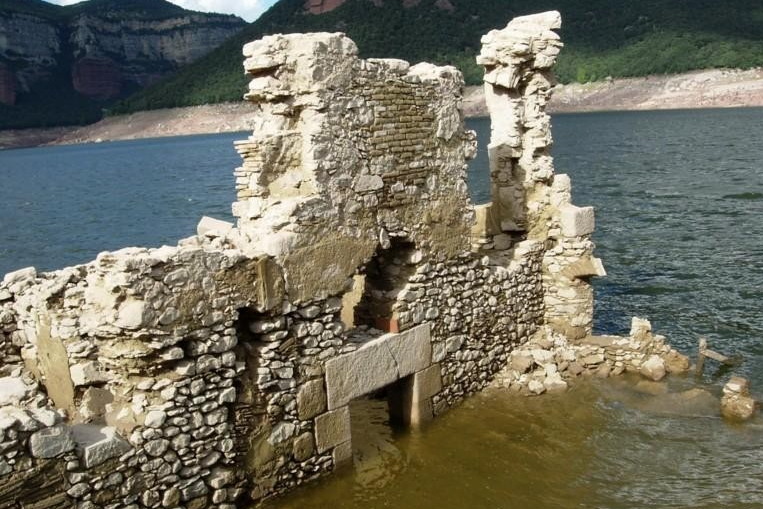
Sometimes old ruins just get in the way of modern progress. When that happens, apparently, there is no other choice than to flood a village with breathtaking Romanesque ruins. Despite the deluge, after 50 years, the proud spire of the village's church just won't go away that easily.
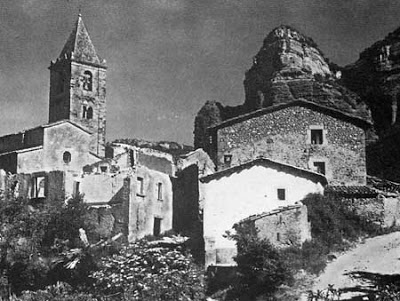 In the 1960s, the Catalonian government made the choice to create a reservoir on the site of San Romà de Sau, a village that had been inhabited since 917, yes, well over a thousand years. Forced to leave their town, the people made their best effort to take their valuables, and even exhume their dead before the man-made flood. Leaving the skeleton of their town, they headed inland.
In the 1960s, the Catalonian government made the choice to create a reservoir on the site of San Romà de Sau, a village that had been inhabited since 917, yes, well over a thousand years. Forced to leave their town, the people made their best effort to take their valuables, and even exhume their dead before the man-made flood. Leaving the skeleton of their town, they headed inland.
As predicted, the creation of the reservoir flooded San Romà de Sau and completely submerged the buildings. However, when water levels in the area drop, the ghost village eerily emerges from the water, highlighted by the three-story church of the town.
Although very small, the pointed spire of the church can still be seen from anywhere in the surrounding hills. When the reservoir is high, only the tip of the Romanesque spire can be seen, but during periods of drought, the entire church emerges on dry land. During one of the dry periods, an effort to fortify the remains took place, and the church was reinforced with concrete. Despite being reinforced, the church is off-limits to visitors, and has a fence surrounding it that sinks with the water level as well.


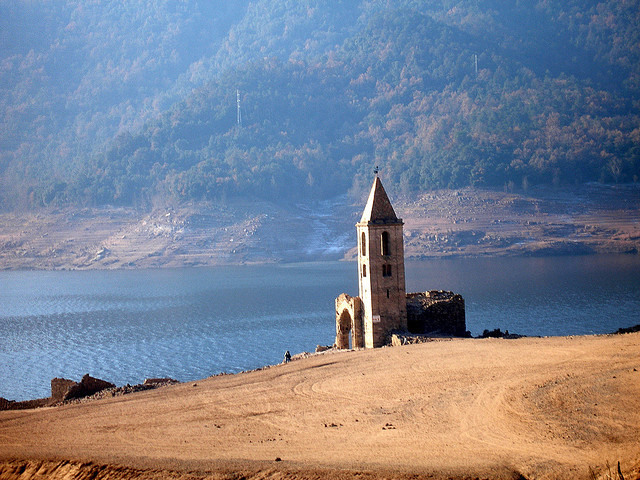
Along with the church, other ruins of the town including an empty cemetery and the foundations of other buildings come to the surface as well and are frequently visited by tourists.
